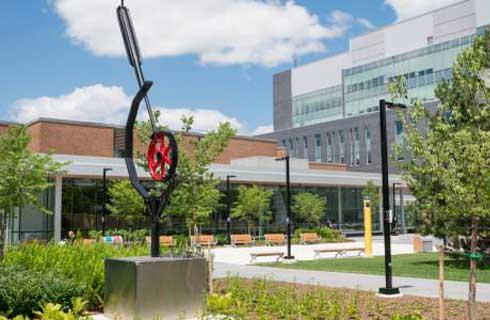MPhil/PhD Clinical Psychology

利物浦大学

QS排名:147
国际学生入学条件
Applicants are normally expected to hold both of the following:
A UK 2:1 Honours degree, or international equivalent, in a relevant subject
A master’s degree in a relevant subject.
展开
IDP—雅思考试联合主办方

雅思考试总分
7.0
了解更多
- 雅思总分:7
- 托福网考总分:100
- 托福笔试总分:160
- 其他语言考试:PTE Academic requirement - 69 with minimum scores of 61 in each component
CRICOS代码:
申请截止日期:请 与IDP联系 以获取详细信息。
课程简介
Undertake research that has real-world benefits with our Clinical Psychology PhDMPhilMD. You’ll explore clinically relevant topics in collaboration with academics, clinicians and experts by experience.IntroductionThe Institute of Population Health conducts internationally acclaimed research into many aspects of psychology and human behaviour. Our research focuses on evaluating the effectiveness of health services, the social origins of health and social inequalities in healthcare, and mental health and wellbeing, including the evaluation of a wide range of psychosocial interventions and therapies.Students studying for a postgraduate degree in clinical psychology would usually be based within the Department of Primary Care and Mental Health (PCMH). PCMH’s goal is to enhance mental health and wellbeing support, and primary healthcare provision. PCMH engages in scholarly activity to develop theories, models and interventions for primary healthcare and to promote mental health and wellbeing. Our research and teaching activities aim to enhance excellence in primary, community, mental health and social care at a local and global level. Our underlying principles include inclusion and diversity, multi-disciplinarity and co-production, and we adhere to robust governance and standards of professional and research ethics.Our research is supported by colleagues working in health and social care, experts by experience and members of the public. We have a long and successful history of research links with NHS services and are extremely well placed to help develop students’ clinical research expertise across a range of settings in mental and physical health care.Research topicsOur research programmes include:Chronic conditions and polymorbidityBig data – CIPHA and System-PVisual impairment in acquired brain injury.We also welcome enquiries from students interested in the following research areas:Global mental healthChildren and familiesOlder adultsPrimary care and community mental healthSuicide and self-harmDementia and ageingClinical psychology (including forensics, pain, dementia, and physical health).
展开
相关申请

预科

奖学金

实习机会

在校学习

跨境学习

校园授课-线上开始

在线/远程学习
学校排名
世界排名
181
数据源:泰晤士高等教育世界大学排名

关于利物浦大学

利物浦大学成立于 1881 年,是英国最早的 "红砖 ''大学,也是著名的罗素集团的创始成员之一,拥有九位诺贝尔奖获得者齐名。利物浦大学拥有近 32500 名学生,其中包括来自 187 多个国家的 7900 名国际学生,是一个多元化、热情友好的生活和学习场所。最先进的一流设施和出色的学生支持确保利物浦大学稳居英国大学20强(在《2026年泰晤士报和星期日泰晤士报优秀大学指南》中名列第18位)、全球大学150强之列(2026年QS世界排名)。该校在 "卓越研究框架"(REF 2021)中巩固了其世界领先研究机构的地位,该校 91% 的研究被评为世界领先或国际优秀。对学生来说,这意味着,在利物浦大学能够由一流的专家为其提供出色的教学,2023年英国政府卓越教学框架(Teaching Excellence Framework)授予该校的最高评级''黄金级''就是最有力的支持和证明。只有7所罗素集团大学因提供最优质的教学而荣获''黄金''评级,利物浦大学就是其中之一。利物浦大学是一所校园大学,坐落在充满活力的城市中心地带,拥有各种设施,其中包括一流的学生宿舍、图书馆、体育中心和学生会,这些都距离不远,步行很快即可到达。利物浦这座城市是披头士乐队、利物浦和埃弗顿足球俱乐部的家乡,除此之外,那里还有丰富的文化等待学生去探索。利物浦真的是一座无与伦比的城市,除伦敦以外,这里拥有英国最多的画廊和博物馆,还有各种各样的餐馆、酒吧和商店,可以满足各种预算和口味需求。此外,如果学生想乘坐火车去其他城市游览,只需2小时20分钟左右即可到达伦敦,36分钟可到达曼彻斯特。
本校相关课程
学历文凭
Masters Degree (Taught)
学历文凭
Masters Degree (Taught)
学历文凭
Masters Degree (Taught)
学历文凭
Masters Degree (Taught)
学历文凭
Masters Degree (Taught)




































